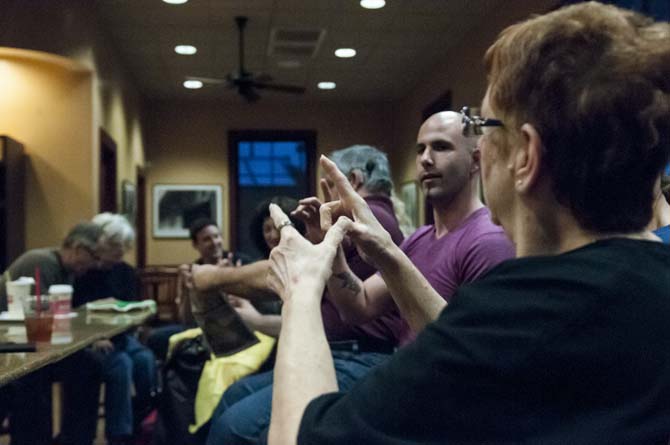This Saturday, the city of Port Allen, Louisiana, hosted a deaf education summit where people came from all around the state to make sure the deaf community has a voice.
More than 20 years ago, something revolutionary happened for the deaf and hard of hearing community: The Louisiana State Legislature passed the Deaf Child’s Bill of Rights, which states that all deaf and hard-of-hearing students have the same rights and the capability to become independent like hearing peers.
However, deaf and hard-of-hearing students are not receiving the accommodations they need in K-12 schools, which are providing noncertified interpreters for them as well.
Many students who are deaf and hard of hearing already start school with language deficits simply because they are hard of hearing and are not able to get all of the pertinent information that is necessary for their success.
But the Deaf Education Alliance (DEA), a small group of sponsors that includes parents, teachers and administrative educators, is trying to change that so the deaf and hard of hearing students do not have to struggle in school.
One major goal of the conference last weekend was to discuss how the Deaf Child’s Bill of Rights could be updated to include stricter phrasing. This would allow legislatures to acknowledge this bill and provide deaf and hard-of-hearing students with the appropriate accommodations and encouragement they need while in school, because this bill does not have enough enforceable language.
However, with recent budget cuts, providing these accommodations to students K-12 isn’t all that simple.
“The only downfall is the increased cost of providing accommodations for deaf and hard of hearing students,” nationally certified sign language interpreter and assistant director of Disability Services Natasha Aymami said in an email. “For instance, schools are responsible for employing and providing qualified and certified communication facilitators, such as: sign language interpreters and captionists. However, standard pay rates for these services can be costly. Captionists require specialized training with C-Print software, which allows the captionists to type using phonetics and the words expand as they appear on the computer monitor for students with hearing loss to read along with their peers seamlessly on their laptop, iPad or even a smart phone.”
We have seen this with people of color, and those with physical or psychological setbacks and changes have been made in a positive light. So this should be no different to the deaf or hearing-impaired community, too.
Quite frankly, it should not be tolerated. According to a petition on Change.org by the Deaf Education Alliance, children can oftentimes get behind in school because of their language deficits, which can result in them graduating with a reading level of fourth grade or below.
But we can all relate to this scenario because many, if not all of us, know someone that has some type of disability.
The answer to that is simple. Every day, I know I see people being treated differently just because they have a disability or a setback. Even if it is just something as “nonchalant” as staring, it is undoubtedly noticeable, and it isn’t cool. Our body language can demonstrate a multitude of emotions that are very passive aggressive, and even our tone of voice can portray a lack of consideration or concern.
As a student body, we need to be aware of those who have disabilities and be as accommodating to their needs as we possibly can.
Nevertheless, we are all distinctive in our own way, but each thing that makes us the person we are is really quite beautiful, even an individual’s disability.
And although you may not currently know someone that is deaf or hard of hearing, maybe next time you encounter someone who is, you will be able to see things from their perspective.
Jen Blate is a 24-year-old sociology junior from Miami, Florida. You can reach her on Twitter @Jblate_TDR.
Opinion: Deaf children need proper accommodations in school
By Jen Blate
January 29, 2015
Pat Adam signs Saturday, April 7, 2014 at Deaf Chat Coffee held at CC’s Community Coffee House on Jefferson Highway.
More to Discover








